I’m about to really honest- but relatable…I remember the first time I heard someone say “Gestalt Language Processing.” My initial thought was, “Oh no—that’s a new term. It’s something else I’m going to have to research.”
Cue the overwhelm.
Some days, it can feel like so many new terms are thrown at us as speech therapists. Thank goodness for social media and Google—we can find the answers to almost anything these days if we want to sift through the tons of results.
For the sake of time and simplicity, this is going to be a very condensed version of Gestalt Language Processing vs Analytical Language Processing. However, if you’re looking for more information, scroll to the bottom—there’s a list of resources.
Analytical Language Processing
Analytic Language Development is the process of “typical” language development.
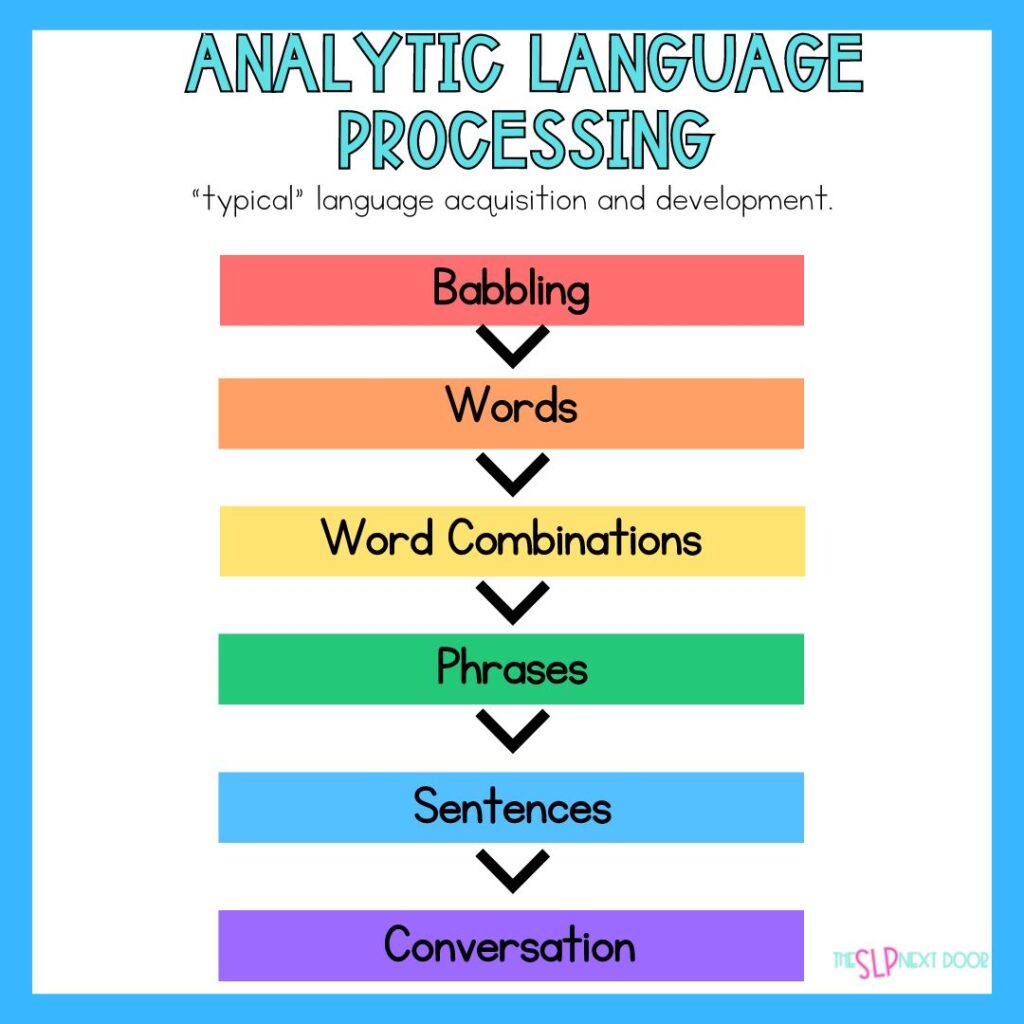
Babies babbling leads to word production. Word production leads to word combinations. Word combinations lead to word phrases, phrases lead to sentences, and sentences lead to conversation.
Gestalt Language Processing
Gestalt Language Processing occurs when children learn “chunks” of language (sometimes called scripts) before learning individual words. Their language development eventually leads to spontaneous sentence structure, but the path to get there looks much different than Analytical language development.
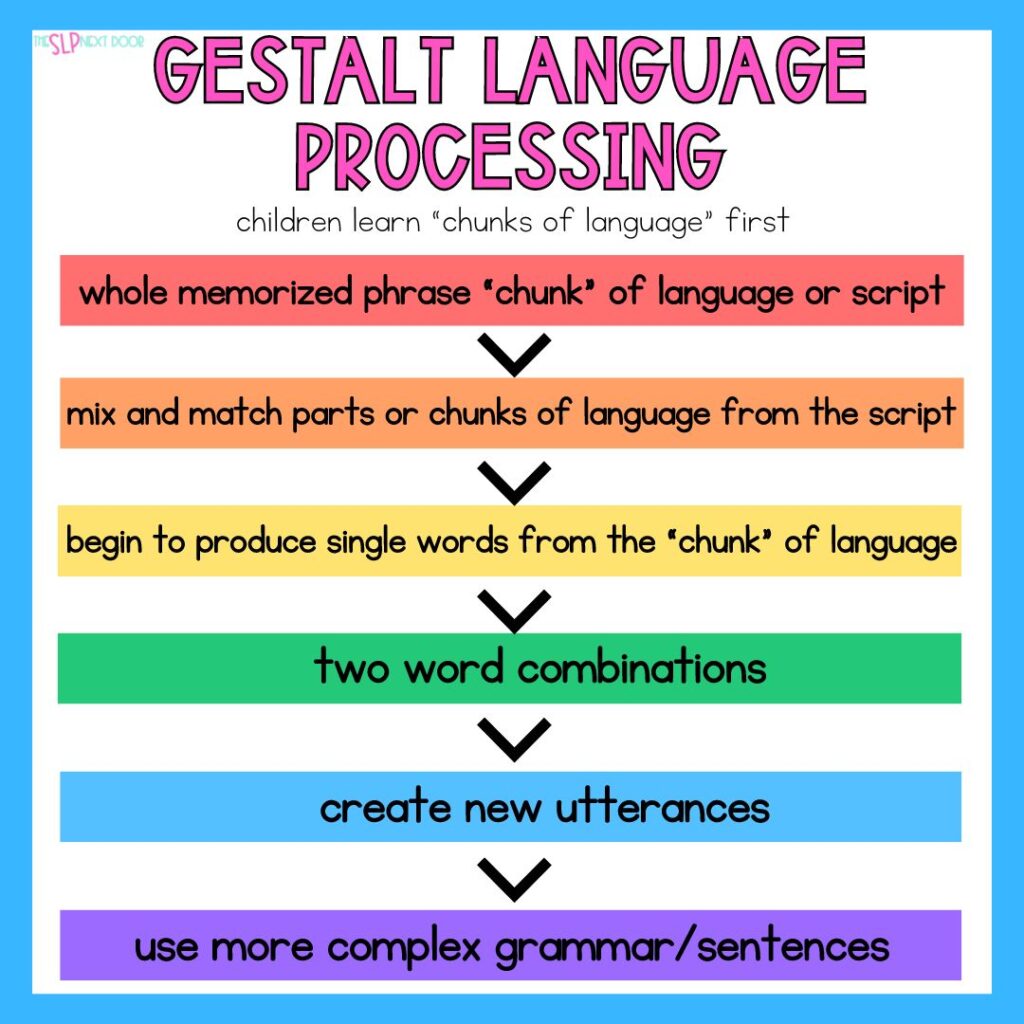
In other words, Gestalt Language Processors initially learn a phrase, script, or complete sentence, a “chunk of language” with a more significant meaning for the child. Next, they mix and match parts of “chunks” of the original phrase or script. From mixing and matching words in the chunks, they process words as units and use single words from the original phrases or “chunks” of language while beginning to produce 2-word combinations. From that stage, these children will create new simple sentences and eventually complete and grammatically correct sentences.
What does this look like?
The easiest way to describe this is through a visual, of course!
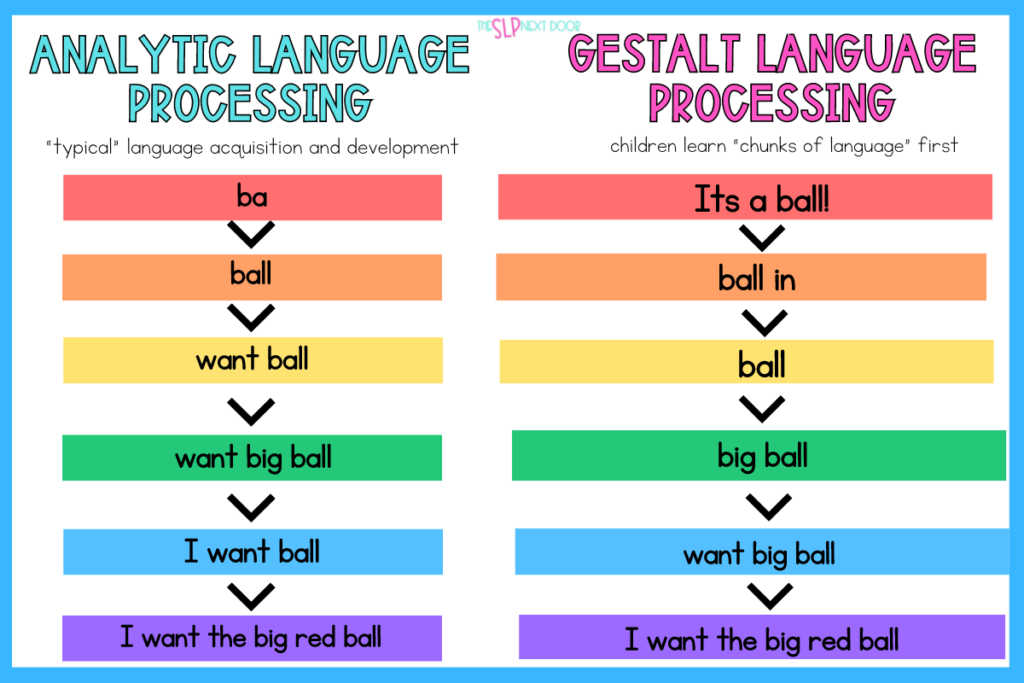
In analytic and gestalt language, the end goal is complete and (age-appropriate) grammatically correct sentences. Gestalt language processors take a different route to get there.
Resources to Learn More:
Am I now an expert in the area of Gestalt Language Processing? Absolutely not.
You won’t be either by listening to this podcast episode. However, Tara from Autism Little Learners explains Gestalt Language Processing well in the episode, and it’s worth a listen!
I also know where to send you to find people who are experts in this area so that you can better educate yourself to help the little ones on your caseload!
Here are some great resources to check out if you want to know more about Gestalt Language Processing:
Meaningful Speech : I highly recommend this one!
Rachel Madel (for AAC & Gestalt Language Learners)

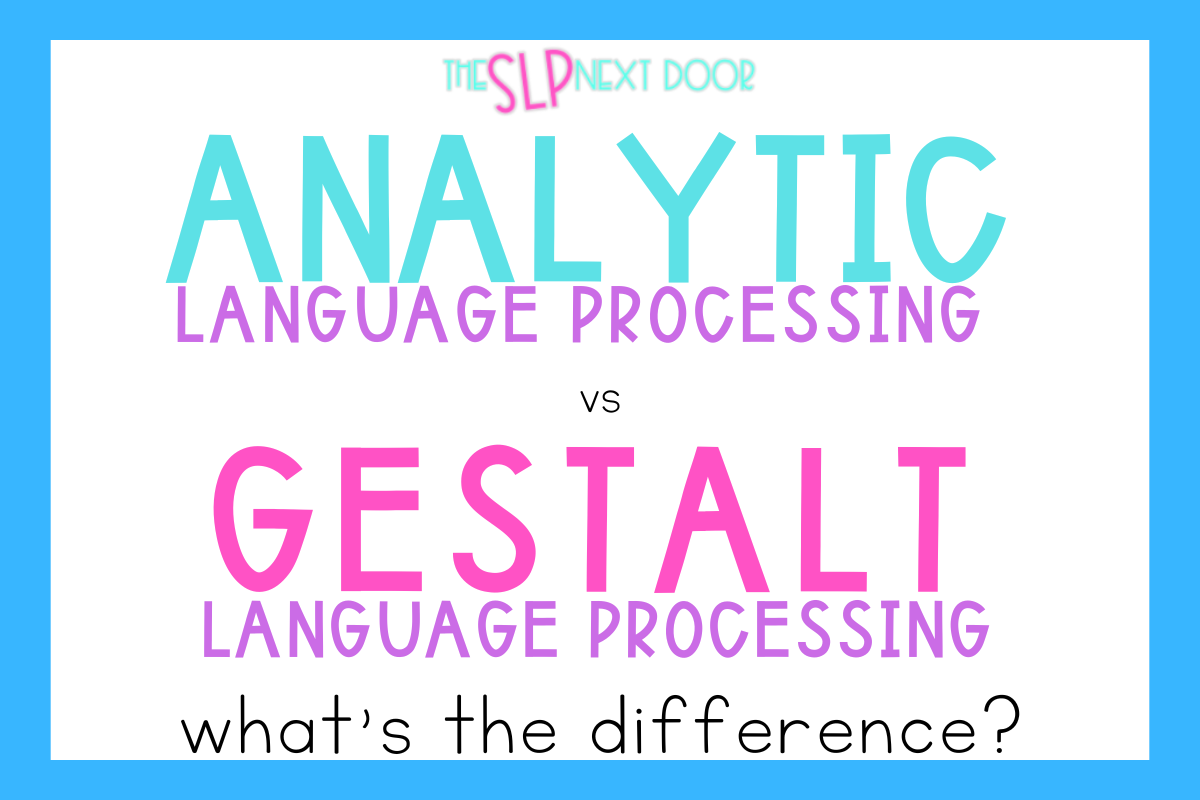
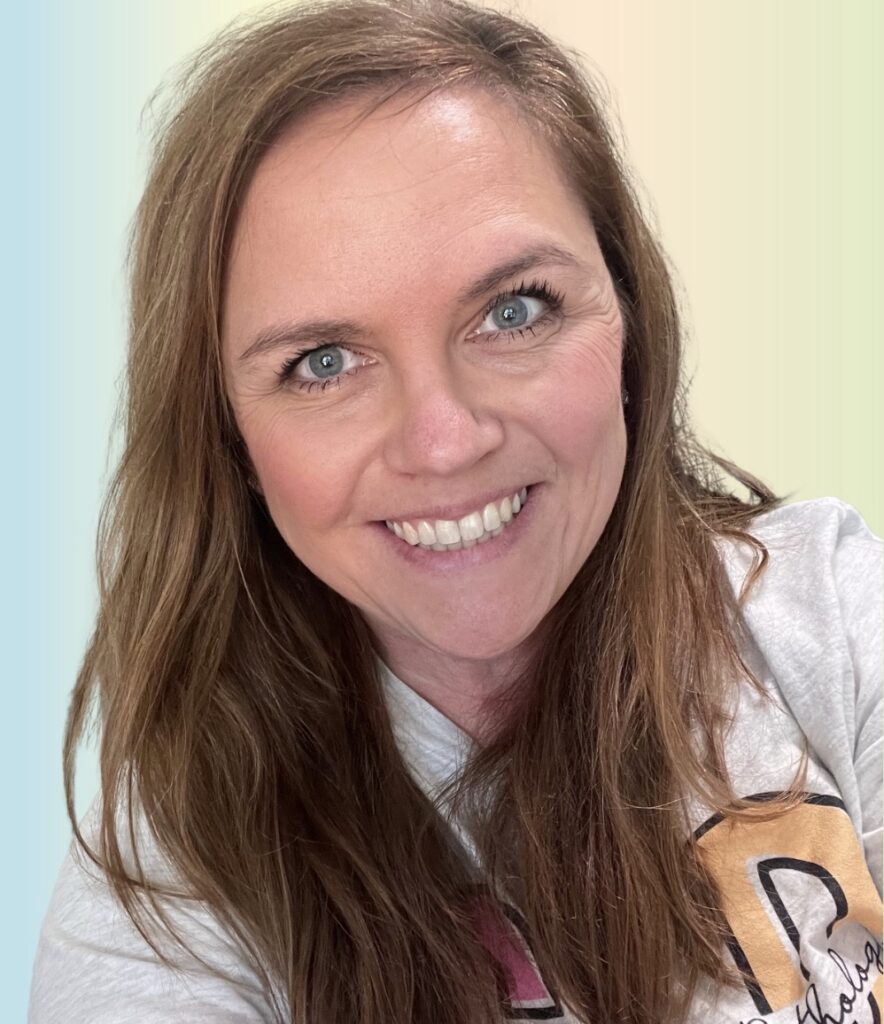
One Response